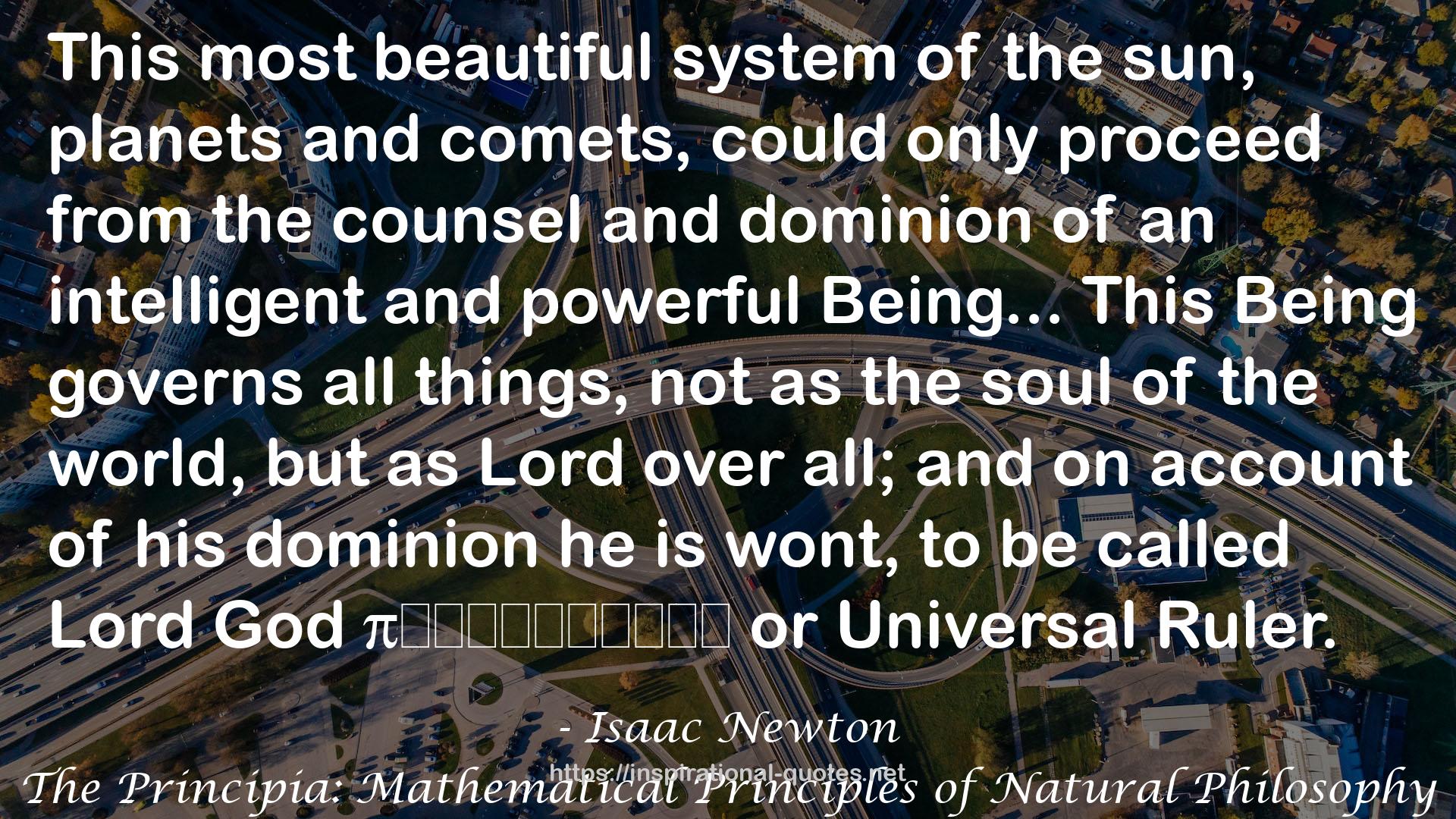The Principia: Mathematical Principles of Natural Philosophy QUOTES
3 " Kepler's laws, although not rigidly true, are sufficiently near to the truth to have led to the discovery of the law of attraction of the bodies of the solar system. The deviation from complete accuracy is due to the facts, that the planets are not of inappreciable mass, that, in consequence, they disturb each other's orbits about the Sun, and, by their action on the Sun itself, cause the periodic time of each to be shorter than if the Sun were a fixed body, in the subduplicate ratio of the mass of the Sun to the sum of the masses of the Sun and Planet; these errors are appreciable although very small, since the mass of the largest of the planets, Jupiter, is less than 1/1000th of the Sun's mass. "
- Holding On (Lights of Peril, #1)
- The Way Home (Lights of Peril, #2)
- Empires and Kings (Mafia #1)
- Ace's Redemption (Devil's Despair, #1)
- Lights of Peril Box Set (Lights of Peril #1-3)
- Hayden's Verse (Devil's Despair, #2)
- The Dark Volume (Miss Temple, Doctor Svenson, and Cardinal Chang, #2)
- The Glass Books of the Dream Eaters (Miss Temple, Doctor Svenson, and Cardinal Chang, #1)
- The Different Girl
- Riding the Bus with My Sister: A True Life Journey

